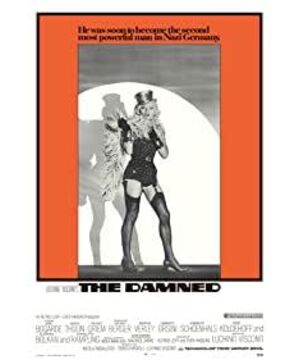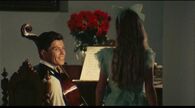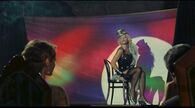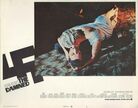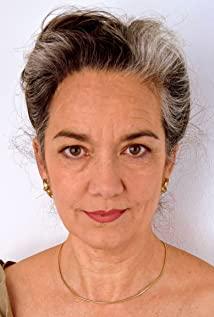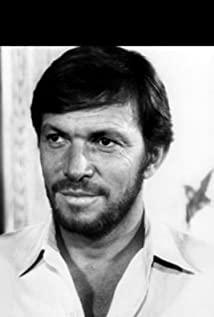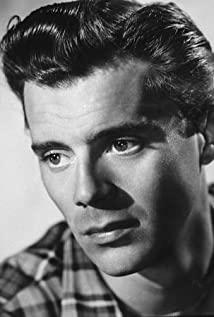After reading the Visconti German trilogy, if I hadn't watched a lot, it would have been impossible for this perverted director to fix it. Looking at the whole, grasp the classical temperament of the Middle Ages in the picture and atmosphere. The lens language mostly uses medium shots and pans to explain the characters and plots. The pictures are dignified and the costumes are exquisite. The actor's appearance and acting skills are still required. Carefully selected foodies. "Nazi Maniac" was interpreted by some as a family fight, and later exaggerated as a political metaphor. Of course, there is no problem. In fact, it is regarded as the expansion of evil in human nature under the evil external forces, like a sponge in water constantly absorbing. The story is that in 1933, on the birthday of Baron Eisenbeck, the whole family had a dinner to discuss peace with the Hitler government. The eldest son, Herbert, had a wife and two daughters, who were opposed to National Socialism. The second son-in-law, Constantine, was rude and arrogant. The leader of the team, wants to seize power, has a son Gante, is righteous, married his second daughter Sophie, is greedy, and got a son Martin after his divorce from Constantine. In the factory, the ambitious Friedode and Sophie fell in love and wanted to get married, and even the Allied SS Ashenbacker took the family property. After the family meeting, Herbert was betrayed by the Nazis and escaped, and Friedode framed and killed his father. The suspense of who was the Nazi madman started. The opening chapter is a play of family gatherings and family performances, in the same way as "The Godfather", in which the character Martin is introduced to perform a striptease at the end, interrupted by the news that the Communist Party has burned down the Capitol, his face is confused. After the meeting today, the director used the camera to suggest that he sexually molested the girl's cousin" , paving the way for the film's turning point, he harassed a Jewish girl when he was trying to meet his relatives, did not stop her before she committed suicide, and watched the Spring Festival Gala? After reading the Visconti German trilogy, if I hadn't watched a lot, it would have been impossible for this perverted director to fix it. Looking at the whole, grasp the classical temperament of the Middle Ages in the picture and atmosphere. The lens language mostly uses medium shots and pans to explain the characters and plots. The pictures are dignified and the costumes are exquisite. The actor's appearance and acting skills are still required. Carefully selected foodies. "Nazi Maniac" was interpreted by some as a family fight, and later exaggerated as a political metaphor. Of course, there is no problem. In fact, it is regarded as the expansion of evil in human nature under the evil external forces, like a sponge in water constantly absorbing. The story is that in 1933, on the birthday of Baron Eisenbeck, the whole family had a dinner to discuss the peace with the Hitler government. The leader, wants to seize power, has a son Gante, awe-inspiring justice, married the second daughter Sophie, sexual greed, and got a son Martin after his divorce from Constantine. In the factory, the ambitious Friedode and Sophie fell in love and wanted to get married, and even the Allied SS Ashenbacker took the family property. After the family meeting, Herbert was betrayed by the Nazis and escaped, and was framed by Friedode to kill his father. The suspense of who is the Nazi madman unfolds. The opening chapter is a play of family gatherings and family performances, in the same way as "The Godfather", in which the character Martin is introduced to perform a striptease at the end, interrupted by the news that the Communist Party has burned down the Capitol, his face is confused. After today's meeting, the director used the camera to suggest that he sexually harassed his 10-year-old cousin", paving the way for the film's turning point. He harassed a Jewish girl during a tryst with relatives, and did not stop her before she committed suicide. Constantine seized the handle and forced to give up power , and hid in fear. Sophie found him and comforted him when she found out. In the end, she teamed up with the SS Aschenbach to move the family property to Friedode, and at the same time killed Konstantin, who was out against Hitler's policies. The facts make Martin collapse, and Aschenbach, who understands the Hegelian system, tempts him to oppose Sophie and Fridotus, telling him that killing Jewish girls is nothing, and he is connected to the Nazis from the heart. It is he who loves his mother The dependence turned into hatred, and it was awesome. Poisoned two people at the final wedding. The film uses sex as a text metaphor, and pedophilia shows Martin's childishness and dependence, and finally broke out. The end uses the camera to show that he became a Nazi Host. The film's neo-realism features are inherited in "Soulbroken Venice", that is, the rhythm is slow, the structure is loose, and the theme is often not clear. , setting the stage for the film's turning point, when he harassed a Jewish girl during a tryst with relatives, unstopping her before she committed suicide. So that Constantine seized the handle, forced to give up the power, and was scared to hide. After Sophie found out, she found him and comforted him. In the end, he teamed up with the SS Aschenbach, moved the family property to Friedode, and killed Konstantin, who was opposed to Hitler's policies. Facts make Martin collapse, and Aschenbach, who understands the Hegelian system, tempts him to oppose Sophie and Fridotus, telling him that killing Jewish girls is nothing, and that he is connected to the Nazis from the heart. It was his reliance on his mother that turned into hatred, which was awesome. Poisoned two people at the final wedding. The film uses sex as a textual metaphor, and pedophilia shows Martin's naivety and dependence, and finally breaks out. The end uses the lens to reflect that he became the host of the Nazis. The film's neo-realism features are inherited in "Soul Broken Venice", that is, the rhythm is slow, the structure is loose, and the theme is often not clear. , setting the stage for the film's turning point, when he harassed a Jewish girl during a tryst with relatives, unstopping her before she committed suicide. So that Constantine seized the handle, forced to give up the power, and was scared to hide. After Sophie found out, she found him and comforted him. In the end, he teamed up with the SS Aschenbach, moved the family property to Friedode, and killed Konstantin, who was opposed to Hitler's policies. Facts make Martin collapse, and Aschenbach, who understands the Hegelian system, tempts him to oppose Sophie and Fridotus, telling him that killing Jewish girls is nothing, and that he is connected to the Nazis from the heart. It was his reliance on his mother that turned into hatred, which was awesome. Poisoned two people at the final wedding. The film uses sex as a textual metaphor, and pedophilia shows Martin's naivety and dependence, and finally breaks out. The end uses the lens to reflect that he became the host of the Nazis. The film's neo-realism features are inherited in "Soul Broken Venice", that is, the rhythm is slow, the structure is loose, and the theme is often not clear. , setting the stage for the film's turning point, when he harassed a Jewish girl during a tryst with relatives, unstopping her before she committed suicide. So that Constantine seized the handle, forced to give up the power, and was scared to hide. After Sophie found out, she found him and comforted him. In the end, he teamed up with the SS Aschenbach, moved the family property to Friedode, and killed Konstantin, who was opposed to Hitler's policies. Facts make Martin collapse, and Aschenbach, who understands the Hegelian system, tempts him to oppose Sophie and Fridotus, telling him that killing Jewish girls is nothing, and that he is connected to the Nazis from the heart. It was his reliance on his mother that turned into hatred, which was awesome. Poisoned two people at the final wedding. The film uses sex as a textual metaphor, and pedophilia shows Martin's naivety and dependence, and finally breaks out. The end uses the lens to reflect that he became the host of the Nazis. The film's neo-realism features are inherited in "Soul Broken Venice", that is, the rhythm is slow, the structure is loose, and the theme is often not clear. , setting the stage for the film's turning point, when he harassed a Jewish girl during a tryst with relatives, unstopping her before she committed suicide. So that Constantine seized the handle, forced to give up the power, and was scared to hide. After Sophie found out, she found him and comforted him. In the end, he teamed up with the SS Aschenbach, moved the family property to Friedode, and killed Konstantin, who was opposed to Hitler's policies. Facts make Martin collapse, and Aschenbach, who understands the Hegelian system, tempts him to oppose Sophie and Fridotus, telling him that killing Jewish girls is nothing, and that he is connected to the Nazis from the heart. It was his reliance on his mother that turned into hatred, which was awesome. Poisoned two people at the final wedding. The film uses sex as a textual metaphor, and pedophilia shows Martin's naivety and dependence, and finally breaks out. The end uses the lens to reflect that he became the host of the Nazis. The film's neo-realism features are inherited in "Soul Broken Venice", that is, the rhythm is slow, the structure is loose, and the theme is often not clear.
View more about The Damned reviews


